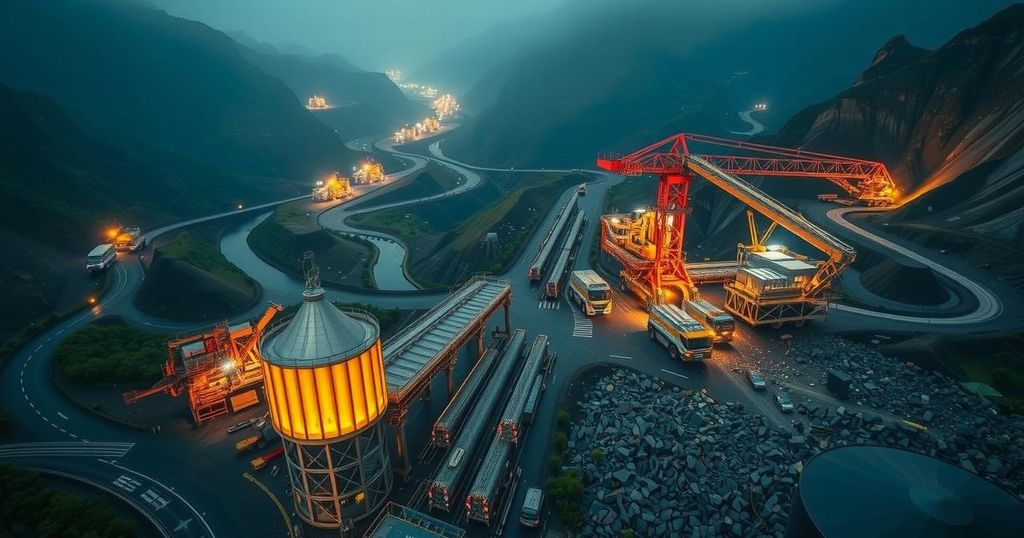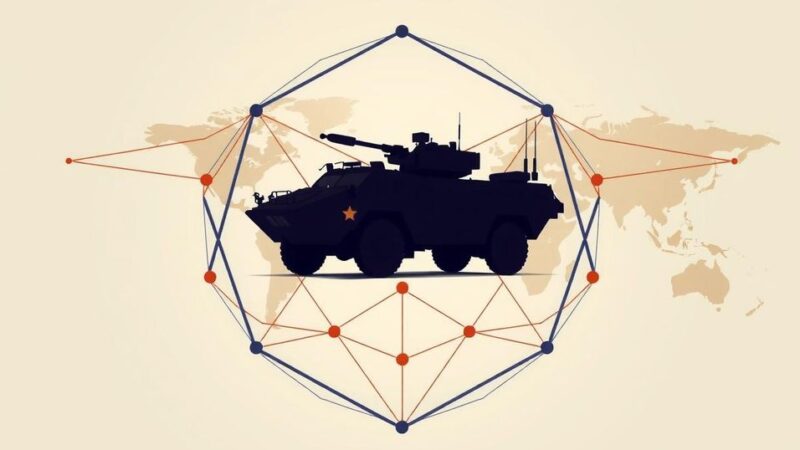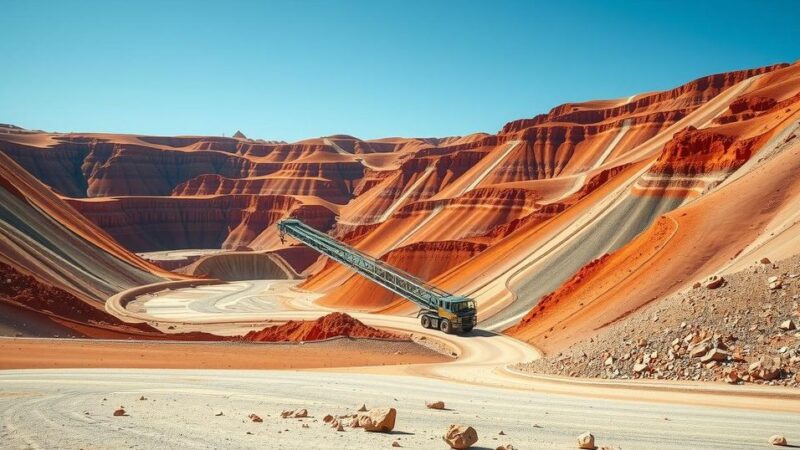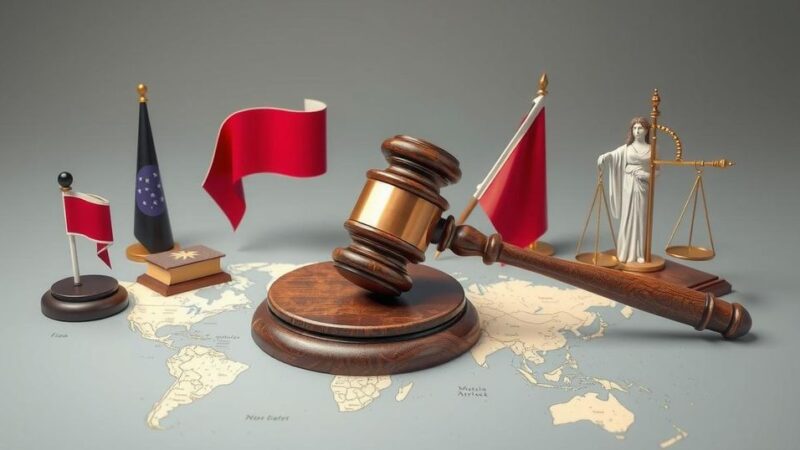In eastern DR Congo’s South Kivu province, Chinese gold mining firms are reportedly operating illegally, disregarding mining regulations and harming the local environment. Local activists, including priest Davide Marcheselli, advocate against these practices amidst widespread corruption. Governor Jean-Jacques Purusi has suspended illegal mining activities to reinforce compliance with mining laws, but illicit operations largely continue, complicating regional governance and economic development efforts.
The eastern Democratic Republic of Congo is facing significant challenges posed by Chinese gold mining companies, particularly in the town of Kitutu. Italian priest Davide Marcheselli has been a vocal opponent of illicit mining operations that have devastated the local environment, contaminating rivers and destroying agricultural land. Many of the foreign companies, primarily Chinese-owned, operate in South Kivu province without the necessary permits and fail to report their profits to local authorities. Local civil society organizations and church members have been at the forefront of resistance against these powerful mining enterprises, which often have connections to influential figures in the government. Marcheselli remarked on the pervasive corruption, stating, “From the deputies, to the village chief, everyone receives something (from the companies), money or shares (in businesses).” In response to burgeoning illegal mining activities, South Kivu governor Jean-Jacques Purusi announced a suspension of such operations until companies can adhere to Congolese mining regulations. This legislation mandates the renewal of mining permits, some of which have been expired for decades. Following this ban, a staggering increase in applications for authorization was observed, with Purusi noting, “In place of the 117 illegal companies we invited, 540 showed up here overnight.” However, mining in nearby Kamituga remains active, with artisanal miners employing rudimentary techniques in an effort to earn a subsistence living. The president of an artisanal mining association, Felicien Mikalano, highlighted the disparity in resources available to local operators versus Chinese firms. Legally, foreign nationals are forbidden from engaging in artisanal mining. Nevertheless, Chinese companies reportedly partner with Congolese cooperatives to evade these restrictions. Approximately half of the regional cooperatives are believed to have such partnerships. The lack of oversight complicates monitoring of these operations, as local and governmental officials often encounter barriers at controlled access points to mining sites. Inspector Ghislain Chivundu Mutalemba stated, “It is difficult to monitor these companies… We don’t know what percentage the Chinese take, or how much they produce.” Gold from Kamituga is often transported to Bukavu, where it is sold, with many traders underreporting their goods to escape regulatory scrutiny. A recently designated state-run business, Primera Gold, has been tasked with managing gold exports from South Kivu to combat illicit trade, particularly towards Rwanda. However, this initiative has yet to significantly disrupt the black market operations. Last year, exports surged from 42 kilograms to over five tonnes. Unfortunately, Primera Gold is currently constrained by liquidity issues and has not effectively mitigated illegal trading practices. The complexities surrounding the operations of these Chinese companies remain largely unaddressed by local authorities, with governor Purusi lamenting the difficulties he faces in acquiring clarity from business representatives who often redirect inquiries to higher officials. This situation in eastern DR Congo encapsulates a broader narrative of environmental degradation, economic exploitation, and regulatory challenges that complicate the region’s development.
Eastern Democratic Republic of Congo, particularly South Kivu, is rich in natural resources, notably gold. However, the region has become a hotspot for illegal mining activities, predominantly involving foreign (especially Chinese) firms. These operations often occur without the requisite permits and have led to substantial environmental damage and economic disarray. Vigilant local groups, including church representatives, have been advocating for legal compliance and environmental preservation, amidst a backdrop of systemic corruption and collusion between mining companies and local officials. The Congolese government has recognized the need for reform, including monopolizing gold exports to mitigate illicit trade routes. However, persistent challenges in governance, financial constraints, and lack of transparency complicate these efforts.
The ongoing issues surrounding Chinese gold mining operations in eastern DR Congo reveal profound environmental, social, and economic ramifications. While local activists strive to confront these challenges, government efforts to regulate the industry face severe obstacles. The partnership dynamics between local cooperatives and foreign companies, coupled with the lack of transparency in gold trading, heighten the difficulties in enforcing compliance with mining laws. Effective governance and adherence to legal standards remain imperative for the sustainable development of the region’s rich mineral resources.
Original Source: www.rfi.fr







